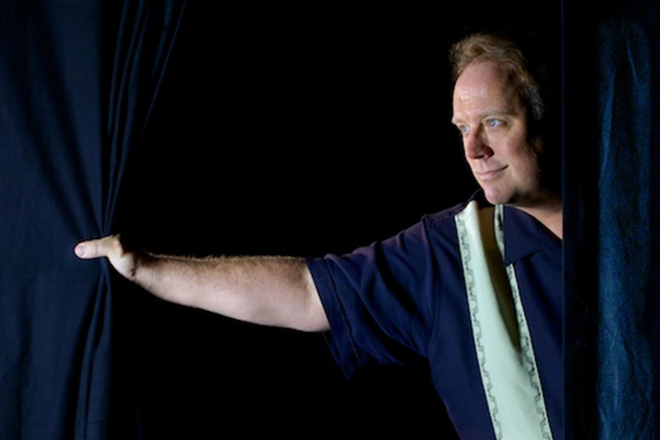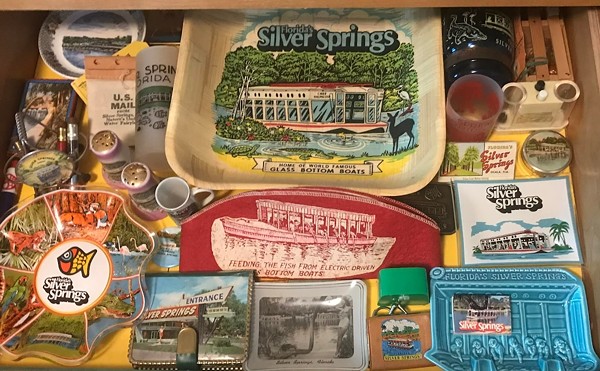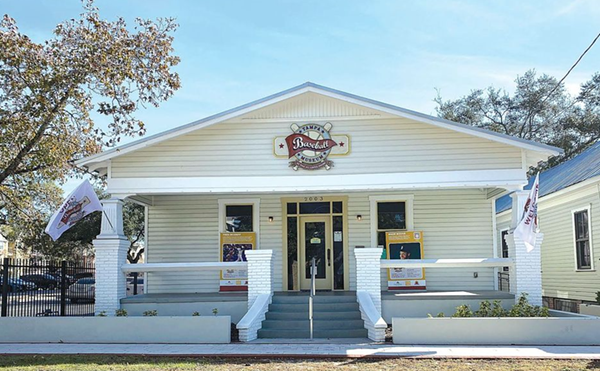As you’ve probably already heard, Todd Olson has left the artistic directorship of American Stage in order to become executive director of the 27-year-old Columbia Festival of the Arts in Maryland, located between Baltimore and Washington, D.C. In Columbia, he’ll curate a summer arts festival, and will work with the festival’s board to realize the city’s plan for a downtown arts park featuring four new theaters. Olson takes over in Columbia on Aug. 1; his last day at American Stage was last Friday.
I sat down with Olson in the office he was about to vacate, and asked him whether the move was his choice or the theater board’s. He said it was his, and that there were three reasons for it: “This great opportunity in Maryland” and two other motives that he didn’t want to discuss. A half-hour later he suggested that salary might be relevant to his choice. His most recent annual salary was $66,000, he said, compared, for example, to the $198,000 that Todd Smith, who just resigned as executive director of the Tampa Museum of Art, was receiving. And he said it was clear that his salary would not increase.
As for the third reason he’s leaving, this theater critic couldn’t persuade Olson to reveal it.
How does he feel about his departure? “It’s very mixed feelings,” he said. “You know, I’ve never spent 11 years at a theater before, at a job before, and now I’m not just moving myself, I’m moving my family.”
He likes the prospect of curating not only theater but music and dance, and he looks forward to living in a region that experiences real seasons. But he has some regrets, too. It disturbs him that the majority of his 11 years here has been in the recession, and has been under “pretty regular financial duress,” he said. “And although I’m really pleased at the art we were able to make and the audience we were able to grow, we were never able to grow ourselves to prosperity, or stability ... I always hoped that making good art equals stability, and I don’t think that’s the case.”
I asked Olson how he felt about Tampa Bay area theater in general. “I think there’s a lot to like,” he said. “And I think we have been working together as one ecosystem better than ever before. I think Theatre Tampa Bay is an important innovation. I think having freeFall in our neighborhood is a good innovation.” But he also believes that the Bay area suffers from not having a university that offers a selective and challenging BFA or MFA program “constantly graduating skilled theater workers who stay.” And he’s somewhat skeptical about the area’s smaller companies: “I think what you have is a lot of well-meaning semi-professional theaters that have big visions that might exceed their abilities. There’s a place for that, but ultimately, I don’t know how much that is going to grow an audience, and how much it will attract the kind of arts patron that a thriving arts city needs.”
He noted further that in contrast to the 10 or so professional theaters in the Bay area, D.C. boasts 12 major regional theaters and some 60 smaller houses. That sort of concentration can only be good for the arts.
Our talk returned, inevitably, to finance. Olson said that he was told by a Milwaukee Rep colleague recently that his theater received $1.1 million from the city of Milwaukee — compared to American Stage’s $11,100 from the City of St. Petersburg. Olson noted that St. Petersburg offers $175,000 for all its arts organizations, which is hardly enough;
“Great cities manage to fund the arts — for jobs, for quality of living. And I haven’t really seen that here.”
Still, on his “best days” Olson saw no limitations running a theater other than the size of his own imagination. But “on my worst days, the money pressures were crushing. ... on my best days, it was like, what are the stories that I would love to tell, and who are the amazing artists in our midst that I can get to tell them, and what’s going to excite me as the custodian of this theater.”
A critic’s view: Olson was one of the best things to happen to Bay area theater in the last 20 years, both as theater head and as director. Under his guidance, American Stage moved to its dazzling new venue, and brought many of the best contemporary plays to an area that otherwise would have gone without. And Olson managed, after a slow start, to utilize the best talent in the region.
It’ll be hard to fill his shoes.



















